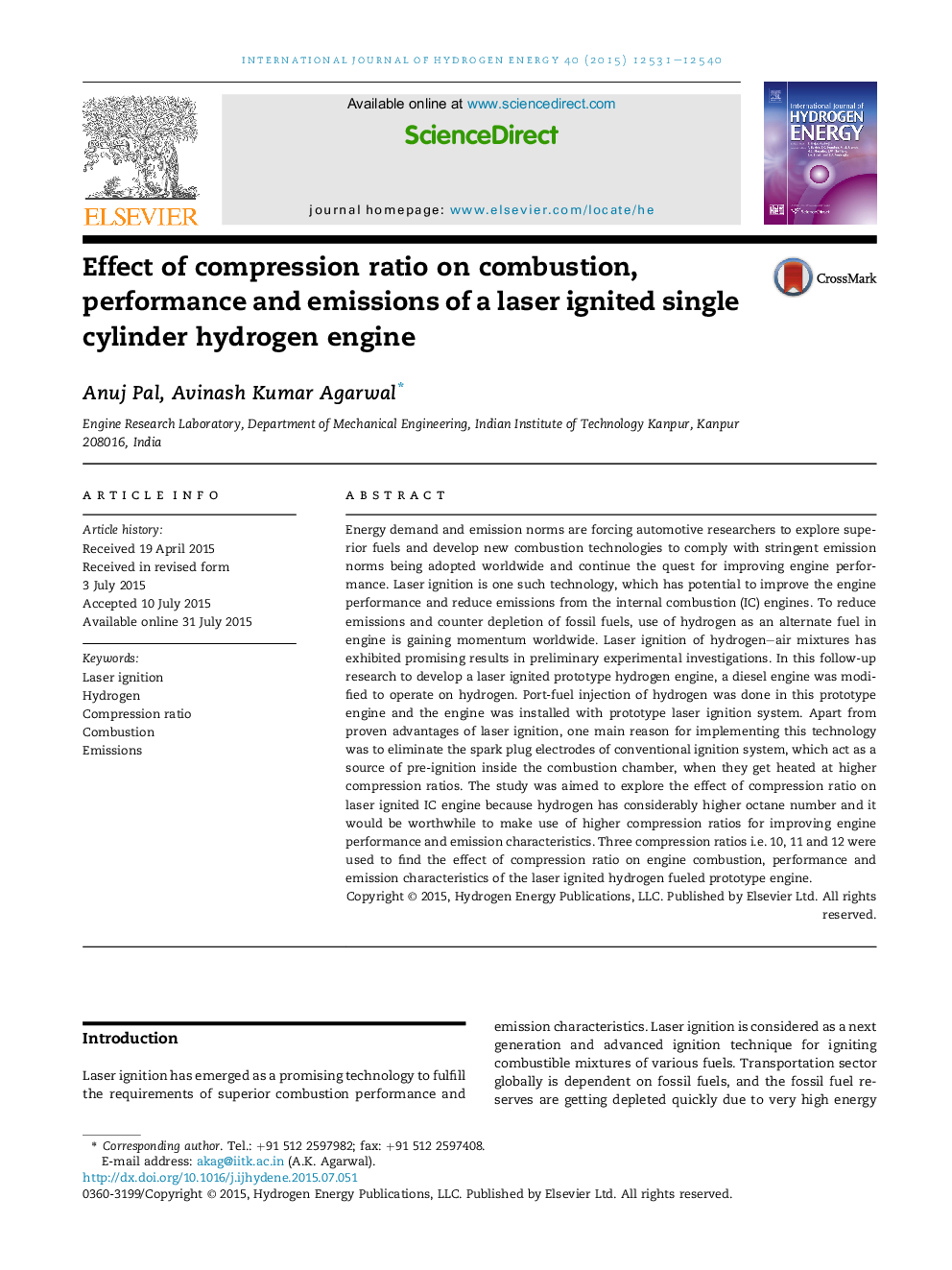| Article ID | Journal | Published Year | Pages | File Type |
|---|---|---|---|---|
| 7714300 | International Journal of Hydrogen Energy | 2015 | 10 Pages |
Abstract
Energy demand and emission norms are forcing automotive researchers to explore superior fuels and develop new combustion technologies to comply with stringent emission norms being adopted worldwide and continue the quest for improving engine performance. Laser ignition is one such technology, which has potential to improve the engine performance and reduce emissions from the internal combustion (IC) engines. To reduce emissions and counter depletion of fossil fuels, use of hydrogen as an alternate fuel in engine is gaining momentum worldwide. Laser ignition of hydrogen-air mixtures has exhibited promising results in preliminary experimental investigations. In this follow-up research to develop a laser ignited prototype hydrogen engine, a diesel engine was modified to operate on hydrogen. Port-fuel injection of hydrogen was done in this prototype engine and the engine was installed with prototype laser ignition system. Apart from proven advantages of laser ignition, one main reason for implementing this technology was to eliminate the spark plug electrodes of conventional ignition system, which act as a source of pre-ignition inside the combustion chamber, when they get heated at higher compression ratios. The study was aimed to explore the effect of compression ratio on laser ignited IC engine because hydrogen has considerably higher octane number and it would be worthwhile to make use of higher compression ratios for improving engine performance and emission characteristics. Three compression ratios i.e. 10, 11 and 12 were used to find the effect of compression ratio on engine combustion, performance and emission characteristics of the laser ignited hydrogen fueled prototype engine.
Related Topics
Physical Sciences and Engineering
Chemistry
Electrochemistry
Authors
Anuj Pal, Avinash Kumar Agarwal,
